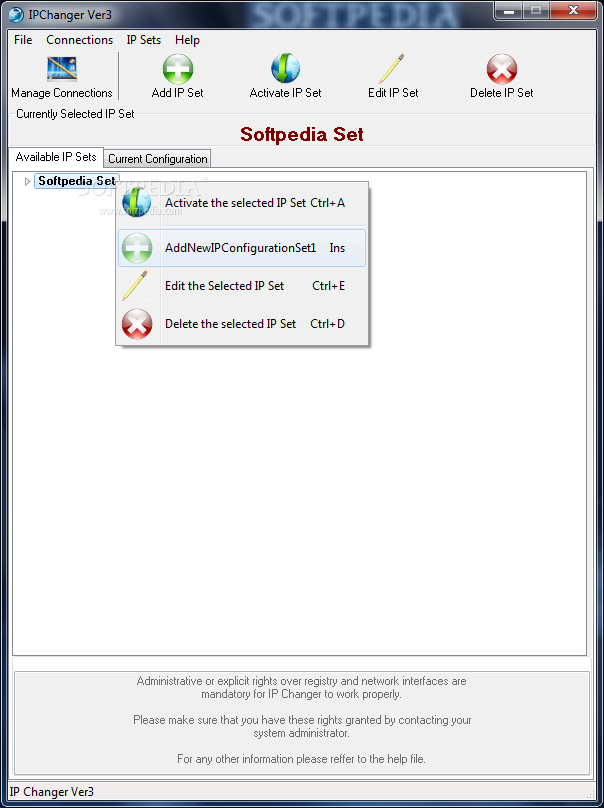Ip Changer 8 6 Unicode
I tried to do it with UCS-2. I changed freetds.conf to UCS-2 and would encode the string with UCS-2 before sending it to the database.
However python doesn't support UCS2 codec so I've tried utf16, since they seem similar enough for this test's purpose. But then I still get unicode objects back, and even stranger ones!

Now even ascii chars don't come back right. If I store u'ABC'.encode('utf16') I get a wierd 8-chars unicode string that when encoded to utf-8 doesn't make any sense. Can you share your configuration?–Jun 5 '09 at 20:08.
Utf-8 Html
Python 3.6 uses the locale encoding for filenames, environmentvariables, standard streams, etc. The locale encoding is inherited fromthe locale; the encoding and the locale are tightly coupled.Many users inherit the ASCII encoding from the POSIX locale, aka the 'C'locale, but are unable change the locale for various reasons. Thisencoding is very limited in term of Unicode support: any non-ASCIIcharacter is likely to cause trouble.It isn't always easy to get an accurate locale. Locales don't get theexact same name on different Linux distributions, FreeBSD, macOS, etc.And some locales, like the recent C.UTF-8 locale, are only supportedby a few platforms. The current locale can even vary on the sameplatform depending on context; for example, a SSH connection can use adifferent encoding than the filesystem or local terminal encoding on thesame machine.On the flip side, Python 3.6 is already using UTF-8 by default on macOS,Android and Windows for most functions - althoughopen is a notable exception here. UTF-8 is also the defaultencoding of Python scripts, XML and JSON file formats. The Goprogramming languageuses UTF-8 for all strings.UTF-8 support is nearly ubiquitous for data read and written by modernplatforms.
It also has excellent support in Python. The problem issimply that the locale is frequently misconfigured.

Ip Changer 8 6 Unicode Code
An obvious solutionsuggests itself: ignore the locale encoding and use UTF-8. When decoding bytes from UTF-8 using the default strict errorhandler, Python 3 raises a UnicodeDecodeError on the firstundecodable byte.Unix command line tools like cat or grep and most Python 2applications simply do not have this class of bugs: they don't decodedata, but process data as a raw bytes sequence.Python 3 already has a solution to behave like Unix tools and Python 2:the surrogateescape error handler. It allows processingdata as if it were bytes, but uses Unicode in practice; undecodablebytes are stored as surrogate characters.UTF-8 Mode sets the surrogateescape error handler for stdinand stdout, since these streams as commonly associated to Unixcommand line tools.However, users have a different expectation on files.

Files are expectedto be properly encoded, and Python is expected to fail early whenopen is called with the wrong options, like opening a JPEG picturein text mode. The open default error handler remains strictfor these reasons. While UTF-8 is perfect in most cases, sometimes the locale encoding isactually the best encoding.This PEP changes the behaviour for the POSIX locale since this locale isusually equivalent to the ASCII encoding, whereas UTF-8 is a much betterchoice. It does not change the behaviour for other locales to preventany risk or regression.As users are responsible to enable explicitly the new UTF-8 Mode forthese other locales, they are responsible for any potential mojibakeissues caused by UTF-8 Mode. Add a new UTF-8 Mode to use the UTF-8 encoding, ignore the localeencoding, and change stdin and stdout error handlers tosurrogateescape.Add the new -X utf8 command line option and PYTHONUTF8environment variable. Users can explicitly activate UTF-8 Mode with thecommand-line option -X utf8 or by setting the environment variablePYTHONUTF8=1.This mode is disabled by default and enabled by the POSIX locale.
Relationship with the locale coercion The POSIX locale enables the locale coercion and the UTF-8mode. When the locale coercion is enabled, enabling theUTF-8 mode has no additional effect.The UTF-8 Mode has the same effect as locale coercion:. sys.getfilesystemencoding returns 'UTF-8',. locale.getpreferredencoding returns UTF-8, and. the sys.stdin and sys.stdout error handlers are set tosurrogateescape.These changes only affect Python code. But the locale coercion hasadditional effects: the LCCTYPE environment variable and theLCCTYPE locale are set to a UTF-8 locale like C.UTF-8. One sideeffect is that non-Python code is also impacted by the locale coercion.The two PEPs are complementary.On platforms like Centos 7 where locale coercion is not supported, thePOSIX locale only enables UTF-8 Mode.
FunctionDefaultUTF-8 Mode or POSIX localeopenlocale/strictUTF-8/strictos.fsdecode, os.fsencodelocale/surrogateescapeUTF-8/surrogateescapesys.stdin, sys.stdoutlocale/strictUTF-8/surrogateescapesys.stderrlocale/backslashreplaceUTF-8/backslashreplaceBy comparison, Python 3.6 uses: FunctionDefaultPOSIX localeopenlocale/strictlocale/strictos.fsdecode, os.fsencodelocale/surrogateescapelocale/surrogateescapesys.stdin, sys.stdoutlocale/strictlocale/ surrogateescapesys.stderrlocale/backslashreplacelocale/backslashreplace.